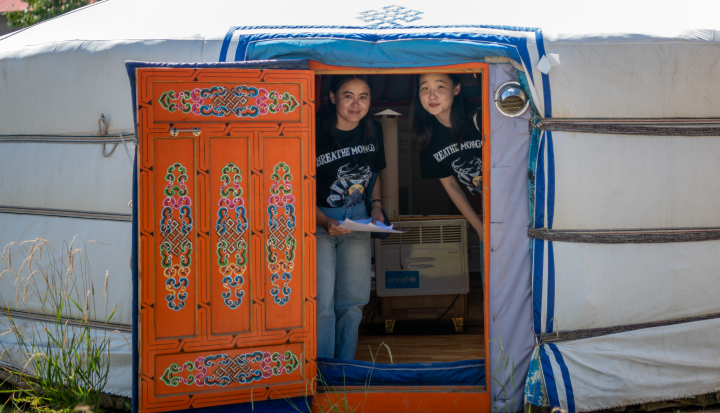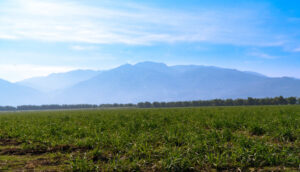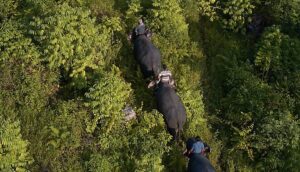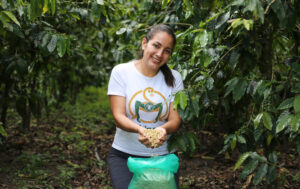Winners have been announced for The Iris Prize 2025, a global award supporting young environmental leaders aged 14-24 with funding, expert mentorship, and bespoke skill-building opportunities.
This year’s winners include Breathe Mongolia, Viaje al Microcosmos de Nuevo León (Mexico), and Project Lawud (the Philippines), each demonstrating how youth-led innovation is driving real change for people and planet.
Since 2022, The Iris Project has channelled over £718,000 in funding and support to 28 youth-led projects in 21 countries. This includes both direct grants, with The Iris Prize offering $43,000 across three categories, and a comprehensive package of wrap-around support such as risk and security training, capacity-building, communications, and mentorship.
Breathe Mongolia
Breathe Mongolia is addressing Mongolia’s air pollution and climate crisis through youth-led advocacy, real-time monitoring, and public education that connects environmental justice with health, equity, and democracy. The project stands out for its massive community response, strategic use of data, and intersectional approach to systemic change.
They have trained over 600 youth, engaged 100 volunteers, facilitated cross-sector dialogue, and reached rural and marginalised communities with inclusive climate messaging. Notably, a national petition led by Breathe Mongolia gathered over 71,000 signatures, prompting a parliamentary oversight hearing on air pollution policy.
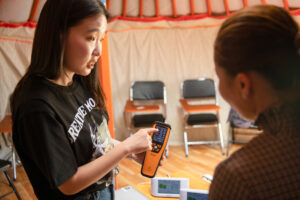
Viaje al Microcosmos de Nuevo León
Viaje al Microcosmos de Nuevo León, reconnects Monterrey residents with the Santa Catarina River by transforming it into a living laboratory and storybook. Through open expeditions, people of all ages use DIY microscopes and the iNaturalist app to observe and document local biodiversity.
Since 2021, their community of over 600 citizen scientists has helped raise the number of recorded species from 781 to 1,126, including emblematic and protected species like the monarch butterfly, American beaver, and spiny soft-shell turtle. Once missing from official records, these findings now strengthen legal petitions for riparian protection and ecological restoration. The project’s impact is seen in its ability to mobilise citizens, generate new scientific data, and influence environmental policy for river protection.
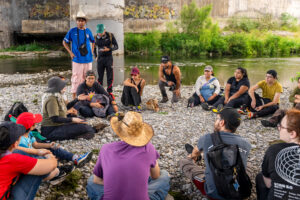
Project Lawud
Project Lawud is working to protect the Philippines’ dugong population, which is critical for conservation in Sarangani Bay. By combining ecological research, community interviews, and citizen science, the team is mapping dugong sightings, training young marine biologists, and developing awareness campaigns to strengthen conservation in this critical habitat.
Project Lawud stands out for its locally rooted, science-meets-community approach that fills data gaps while building capacity and influencing marine policy from the ground up. Their impact is reflected in the way they empower local youth, generate essential conservation data, and shape marine protection efforts in the region.
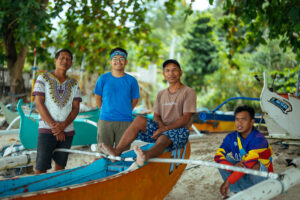
On the winners, Millie Edwards, Director at The Iris Project, adds:
“The 2025 winners remind us why backing youth leadership is one of our most urgent commitments for the planet. In Mongolia, Mexico, and the Philippines, young project leaders are taking on toxic air, restoring rivers, and protecting endangered species, proving that youth-led action delivers impact where it matters most. They don’t just give us hope, they deliver results.”
“Our job is to stand beside them with trust, tools, and visibility so they can go further. With the climate and nature crises accelerating, supporting young innovators isn’t optional – it’s essential if we want a safer, more sustainable future.”
With less than 1% of institutional climate funding currently being directed towards young people, youth-led environmental action remains massively underfunded. The Iris Prize’s approach focuses on supporting youth-led projects and is designed to address this disparity by highlighting the initiatives undertaken by young teams to protect and restore nature, as well as recognising the contributions of those committed to defending their environment.
Desmond Alugnoa, Co-Founder of the Green Africa Youth Organisation and 2024 Earthshot Prize winner, said:
“Judging this year’s Iris Prize was a powerful reminder that the most transformative climate solutions often come from those closest to the challenges.
“These young leaders are not waiting for permission; they are creating change, and their creativity, courage and commitment are exactly what the world needs to tackle the climate and nature crises. It was a privilege to be part of this year’s judging panel, and I’m looking forward to seeing how this funding can help these groups scale up their work.”
The Iris Prize 2025 highlights the power of youth-led environmental action and the importance of supporting young leaders with funding, mentorship, and practical skills. As climate and nature crises accelerate, backing youth innovators is essential for a safer, more sustainable future.
